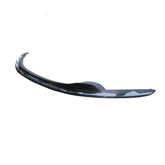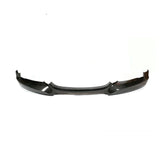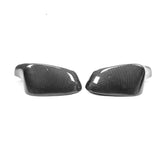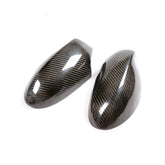Selecting custom wheels for your vehicle is not just about enhancing its aesthetic appeal; it's also about improving performance and ensuring safety. The right set of wheels can transform your vehicle's appearance and driving dynamics. Here’s a comprehensive guide on how to choose the perfect fit for your vehicle.

Understand Wheel Specifications
-
Diameter: Larger wheels can give your vehicle a more aggressive stance and improve handling but may also affect ride comfort. Conversely, smaller wheels can enhance ride comfort and are better suited for off-road applications.
-
Width: The width of the wheels affects tire choices and handling characteristics. Wider wheels can accommodate wider tires, offering better traction and a more muscular look.
-
Bolt Pattern: The arrangement of the lug holes on the wheel must match your vehicle’s hub. This is critical for the wheel to fit securely.
-
Offset: This is the distance from the centerline of the wheel to its mounting surface. Offset affects how the wheels sit in relation to the car's body – too much inward or outward offset can cause clearance issues.
-
Backspacing: Measures the distance from the wheel’s mounting surface to the back edge of the wheel. Along with offset, it determines the wheel's position relative to the fender.
Consider Material and Construction
-
Alloy Wheels (Aluminum/Alloy): Lightweight and available in various designs, alloy wheels improve performance by reducing unsprung weight, which can enhance handling and fuel efficiency.
-
Steel Wheels: Known for their durability and strength, steel wheels are typically heavier and used in rugged applications or winter wheels due to their resistance to damage from poor road conditions.
-
Forged vs. Cast: Forged wheels are made from a single piece of metal and are stronger and lighter but more expensive. Cast wheels are made by pouring molten metal into a mold; they're more affordable but heavier and less strong than forged wheels.
Aesthetics vs. Functionality
Decide on your priorities. Are you looking for wheels that primarily enhance your vehicle's look, or are performance improvements more important? Ideally, you'll find wheels that satisfy both criteria, but understanding your priorities is key to making the right choice.
Fitment and Performance
-
Consult Fitment Guides: Use online fitment guides or consult with wheel and tire professionals to find options compatible with your vehicle.
-
Consider Local Road Conditions: Choose wheel and tire combinations suitable for the roads you frequently drive on. Larger rims with low-profile tires might be suitable for smooth highways but could be prone to damage on rough roads.
Legal and Safety Considerations
-
Check Local Regulations: Some modifications might not be legal in your area, especially if they significantly alter the vehicle's height or width.
-
Insurance: Ensure your insurance company is informed about significant modifications to avoid potential coverage issues.
Test Before You Buy
If possible, see how the wheels look on your vehicle before finalizing the purchase. Some retailers offer visualization tools or may allow test fittings.
Brands and Quality
-
Reputable Brands: Invest in wheels from reputable manufacturers known for quality and reliability. This ensures your new wheels meet safety and performance standards.
-
Warranty and Support: Check warranty coverage for the wheels. A good warranty indicates the manufacturer's confidence in their product.
Choosing the perfect custom wheels for your vehicle involves balancing aesthetics, performance, and functionality. By understanding wheel specifications, considering material and construction, and paying attention to fitment and legality, you can enhance your vehicle's appearance and driving experience significantly. Remember, the right set of wheels can redefine your vehicle's character and make your driving experience even more enjoyable.










